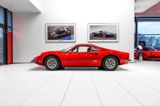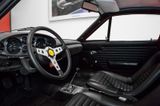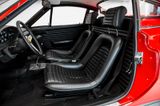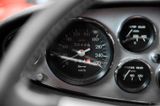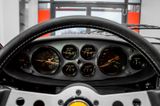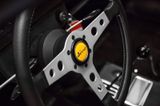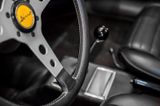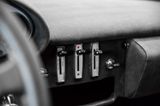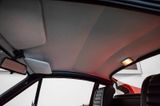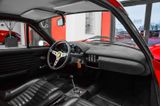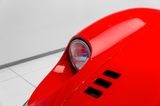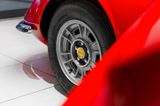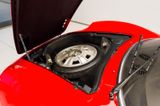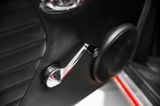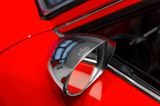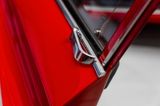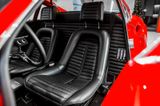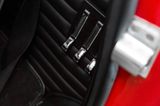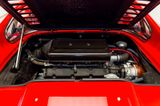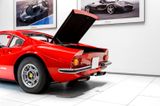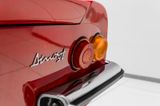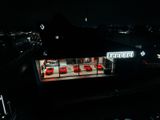Ferrari 246 GT Dino Series M (II) ~Ferrari Munsterhuis~
379 500 € (brutto)
Preis
379 500 € (brutto)
VAT nie podlega zwrotowi
1 619 820 zł (brutto)
Dane techniczne
Stan
Informacje:
Pojazd jest uznawany za „bezwypadkowy”, gdy sprzedawca może dostarczyć wiążące zapewnienie potwierdzające, że pojazd nigdy nie uległ żadnemu (poważnemu) uszkodzeniu ani wypadkowi.Bezwypadkowy, Używany
KategoriaSportsCar
Pierwsza rejestracja06/1970
Skrzynia biegówRęczna skrzynia biegów
PaliwoBenzyna
Przebieg58 499 km
Moc143 kW (194 KM)
Pojemność2 418 cm3
Liczba miejsc2
Liczba drzwi2/3
KolorCzerwony
Kolor wg producentaRosso
Stan pojazduPojazd używany, Bezwypadkowy
Informacje:
Pojazdy uszkodzone to takie, które mają nienaprawione istotne uszkodzenia, powstałe np. w wyniku wypadku drogowego, pożaru, gradu, zalania, awarii silnika lub skrzyni biegów. Do tej kategorii nie zalicza się: 1.) pojazdów wykazujących normalne oznaki zużycia; 2.) pojazdów z drobnymi usterkami; 3.) pojazdów, które uległy uszkodzeniu w wyniku wypadku, ale zostały naprawione. Natomiast pojazd można uznać za bezwypadkowy tylko wtedy, gdy nigdy nie uległ poważnym uszkodzeniom w wyniku wypadku. Pod pojęciem „poważne uszkodzenia” rozumie się wszystkie uszkodzenia, których nie można określić jako drobne (np. zarysowanie lakieru). Pojazdu nie można określić jako bezwypadkowy również w przypadku, gdy uszkodzenie zostało odpowiednio naprawione. Natomiast kategoria „zdolny do jazdy” oznacza, że pojazd jest w stanie technicznym pozwalającym na jazdę (bez uszkodzeń silnika itp.). Kategoria ta nie uwzględnia kwestii bezpieczeństwa ruchu ani innych aspektów zdolności do jazdy.KategoriaSamochód sportowy / Coupé
PochodzenieWersja EU
AntriebsartSilnik spalinowy
Wyposażenie wnętrzaWszystko ze skóry, Czarny
Cylinder6
Wyposażenie
Pojazd użytkowany przez osoby niepalące
Rear wheel drive
Serwisowany
Opis pojazdu
Hereby we are selling this unique Classiche certified Dino 246GT.
New Delivered in Italy. 2016 Classiche certified.
The Dino 246 GT was an evolution of the Dino 206 GT, with a larger V6 engine and a wheelbase lengthened by 60 mm. Apart from the longer body, the design was virtually identical, with just a longer engine cover and a repositioned fuel cap. The car proved commercially very successful, and three series were produced during its life span. When production stopped in 1973-4 demand was still high.
At about the time that the Dino 206 GT gave way to its successor the 246 GT during 1969, Enzo Ferrari was reaching an agreement with Gianni Agnelli of Fiat to take over the production car side of the Ferrari business.
At this time Enzo Ferrari was already over 70 years of age, and apart from securing the long-term future of the production car business, it freed him from the day to day responsibilities of it, and gave him more time to devote to his first love, the racing department. The Dino 246 GT made its official debut at the Turin Show in November 1969, although the production run had already commenced. A total of 81 examples were completed by the end of the year.
Visually the 246 GT was almost identical to the 206 GT that it succeeded, apart from the fuel filler cap being under a flush fitting flap on the left sail panel. In reality there were more differences than initially met the eye. Apart from the increase in engine capacity from 2 litres to 2.4 litres, the engine block material was changed from aluminium to cast iron. Also not apparent from a casual glance was the change to the wheelbase, which was 2280mm on the 206 GT, and 2340mm on the 246 GT, with a corresponding increase in overall length. An increase in diameter of the paired twin exhaust pipes could also be noticed.
During the production period of the 246 GT from 1969 to 1974, there were no major changes to any features, although various smaller items and details did change, leading to the three series of cars referred to as “L”, “M” and “E”. This is apart from the different market versions, and the targa-roof 246 GTS model. Broadly speaking, series “L” cars were produced in late 1969 and through 1970.
They have road wheels with a single knock-off spinner, front quarter bumpers into the grille opening, rear licence plate lights in the quarter bumper ends, an external boot lid release button and head rests mounted on the rear bulkhead. The body material was steel with an aluminium front lid. Series “M” cars were produced for a short period in the early part of 1971. They had five bolt fixing for the road wheels, an internal rear boot lid release catch, seat-mounted headrests, plus detail changes to the engine and gearbox, whilst the chassis received modification, resulting in an increase of 30mm in the rear track.
For more information, please contact:
Rik Hettema r.hettema@munsterhuis.nl
Wouter Struik w.struik@munsterhuis.nl
Robin Schurink r.schurink@munsterhuis.nl
Or call +31 (0) 742555370 or come over to Hengelo
New Delivered in Italy. 2016 Classiche certified.
The Dino 246 GT was an evolution of the Dino 206 GT, with a larger V6 engine and a wheelbase lengthened by 60 mm. Apart from the longer body, the design was virtually identical, with just a longer engine cover and a repositioned fuel cap. The car proved commercially very successful, and three series were produced during its life span. When production stopped in 1973-4 demand was still high.
At about the time that the Dino 206 GT gave way to its successor the 246 GT during 1969, Enzo Ferrari was reaching an agreement with Gianni Agnelli of Fiat to take over the production car side of the Ferrari business.
At this time Enzo Ferrari was already over 70 years of age, and apart from securing the long-term future of the production car business, it freed him from the day to day responsibilities of it, and gave him more time to devote to his first love, the racing department. The Dino 246 GT made its official debut at the Turin Show in November 1969, although the production run had already commenced. A total of 81 examples were completed by the end of the year.
Visually the 246 GT was almost identical to the 206 GT that it succeeded, apart from the fuel filler cap being under a flush fitting flap on the left sail panel. In reality there were more differences than initially met the eye. Apart from the increase in engine capacity from 2 litres to 2.4 litres, the engine block material was changed from aluminium to cast iron. Also not apparent from a casual glance was the change to the wheelbase, which was 2280mm on the 206 GT, and 2340mm on the 246 GT, with a corresponding increase in overall length. An increase in diameter of the paired twin exhaust pipes could also be noticed.
During the production period of the 246 GT from 1969 to 1974, there were no major changes to any features, although various smaller items and details did change, leading to the three series of cars referred to as “L”, “M” and “E”. This is apart from the different market versions, and the targa-roof 246 GTS model. Broadly speaking, series “L” cars were produced in late 1969 and through 1970.
They have road wheels with a single knock-off spinner, front quarter bumpers into the grille opening, rear licence plate lights in the quarter bumper ends, an external boot lid release button and head rests mounted on the rear bulkhead. The body material was steel with an aluminium front lid. Series “M” cars were produced for a short period in the early part of 1971. They had five bolt fixing for the road wheels, an internal rear boot lid release catch, seat-mounted headrests, plus detail changes to the engine and gearbox, whilst the chassis received modification, resulting in an increase of 30mm in the rear track.
For more information, please contact:
Rik Hettema r.hettema@munsterhuis.nl
Wouter Struik w.struik@munsterhuis.nl
Robin Schurink r.schurink@munsterhuis.nl
Or call +31 (0) 742555370 or come over to Hengelo
Dealer dane kontaktowe
Munsterhuis Sportscars B.V.
Goudstraat 31-49
NL-7554 NG Hengelo Holandia
- Numer telefonu: +31 74 808 0795
Z mobile.de od 5 lis 2013
Obsługiwane języki:
Deutsch, English, Nederlands

